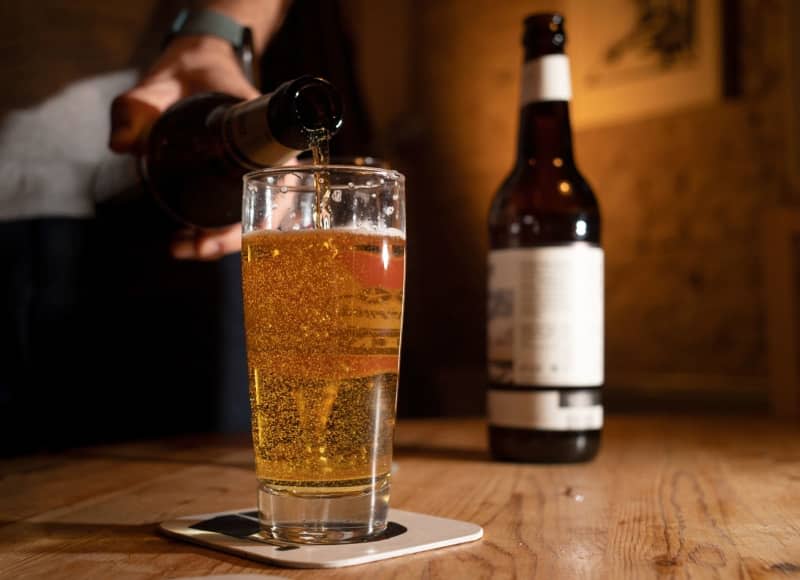Its shelf life is ticking. When will your stored beer go off?

Here's a good problem to have: Let's say the barbecue you'd planned fell through and you've got a couple of crates of beer on your hands that now will take nearly forever to drink. How long will it keep?
The short answer is: longer than you may think. Although beer, in contrast to wine or spirits, is one of the few alcoholic beverages requiring a best-before date on the bottle or can, you don't have to pour it down the drain as soon as it's expired, says Daniele Krehl, a nutrition expert for the consumer advice centre in Bavaria, Germany.
"The best-before date is simply the brewer's guarantee of the beer's drinkability up to then - in other words, that it will still taste as if freshly bottled and have sufficient carbonation," she explains. "This doesn't mean that expired beer is harmful to health or can contain germs of some kind."
The beer's alcohol content and slight acidity are inimical to most germs, the acidity usually making alcohol-free beer, too, safe to drink after it's expired.
Whether the beer still tastes good is another matter, however, which of course you can test by taking a sip of it. Before that, you can check whether it's cloudier than normal or smells funny. "If it has an odd smell, it might be best not to drink it," says Krehl.
As for a tapped party keg, she advises drinking the remaining beer as soon as possible and not storing it in the fridge for more than a day or two. Theoretically, germs could enter the keg via the tap, she says, adding: "The biggest problem, though, would probably be escaped carbonation resulting in flat, unpleasant tasting beer."
If the beer does go flat, you could still use it to flavour, for example, gravy or batter. And if it's lost just a little of its fizz, Krehl says it generally can still be mixed with lemonade or sparkling mineral water to make a refreshing drink.
To preserve beer's taste as long as possible, the German Brewers Association (DBB) recommends storing it in a cool, dark cellar as soon as you can after purchase. The ideal storage temperature is four to seven degrees Celsius, it says.
The darker and stronger (more alcoholic) a beer is, the longer its shelf life. If you like port wine, the DBB says you may also like extra-strong bock beer or dark bock beer, since with time they'll acquire a sherry-like note reminiscent of port.

